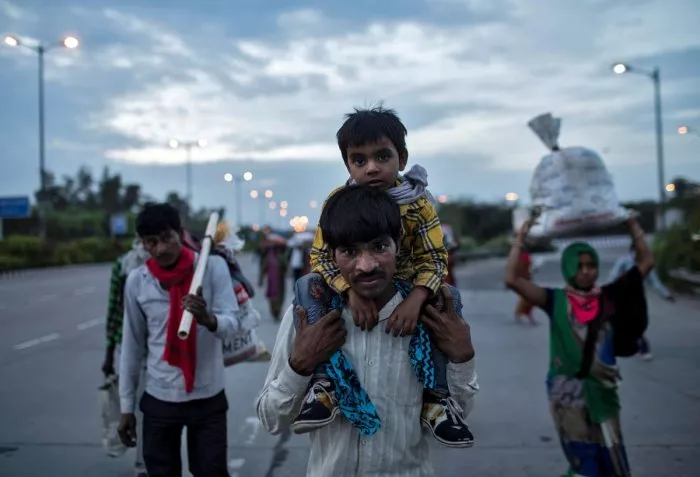Covid-19 and plague of lingering inequalities
For poor and overpopulated poor countries, space is a luxury
As the world continues to struggle with Covid-19, the social and economic implications of this pandemic are still in the process of emerging. Some observers think that Covid-19 will compel nations around the world to make a fundamental choice between defending the status quo and embracing progressive change, including a rethink of our relationship with the natural world. Others, however, suspect that entrenched elite interests will continue to hijack attempts to contend with the aftermath of Covid-19, and that we will not have to brace for economic depression, but also increased divisiveness and repression around the world.Both western countries and the developing world have come under the grip of this pandemic. Ironically, richer countries with more resources and better healthcare systems have experienced much higher death rates till present. This unexpected trend may have to do with a range of factors including the average age of a country’s citizens, the number of Covid-19 cases being detected, or even the resilience in developing countries due to widespread prevalence of BCG vaccinations.
Yet, the impact of Covid-19 on already vulnerable populations within both the developed and the developing world is equally perturbing.
Data emerging from the coronavirus outbreak in the US has laid bare how racial minorities are disproportionately being affected by Covid-19. This global pandemic has also worsened the plight of multitudes of migrants living in camps at the doorstep of Europe or the US.
Many poorer countries have been compelled to divert their scant health sector resources to contend with Covid-19, which is feared to derail vital efforts to contend with other lingering diseases such as measles, typhoid or meningitis.
For poor and overpopulated poor countries, space is a luxury and social distancing is nearly impossible to achieve in their sprawling slums. Many such countries are struggling to minimise the spread of the virus while trying to address the plight of the masses who are dependent on daily wage earnings to ensure household survival.
After weeks of lockdown, the government in Pakistan has begun providing a one-off payment of about $70 to 12 million families. This rollout represents a near-tripling of recipients of the existing social protection (Ehsaas) programme. Such rapid expansion of social protection is not easy. Thus, concerns about corruption, mistargeting, and deserving people falling through the gaps are legitimate. NGOs and private philanthropy are trying to fill the gaps, but the need remains immense, and long-term impact of the mushrooming virus on the lives of the marginalised remains to be seen.
In India, PM Modi has announced extending the nationwide lockdown till the beginning of May. India is also struggling to address the plight of millions of daily-wage earners. The Indian government is running community kitchens and providing free bulk grain to the poor and homeless, but such efforts are unable to reach everyone in need. Modi’s lockdown is thus being described as the world’s biggest and most punitive lockdown.
Moreover, it is unfortunate to see Indian politicians and even the Indian media weave the Covid-19 threat into a broader toxic anti-Muslim campaign. The Tablighi Jamaat’s congregation in Delhi before the lockdown was announced has been dubbed a “super spreader” and already beleaguered Indian Muslims are being stigmatised for purposely engaging in “Covid jihad”.
Pakistan has experienced a reverse trend where the Tablighi Jamaat event outside Lahore not only went ahead, but now clerics are threatening and resisting mosque closure.
One hopes the current situation which has brought life to a juddering halt will give us time enough to reflect and to overcome our divisive tendencies and our misplaced priorities such as bloated defence expenditures.
Our governments also need to invest more resources in ailing public health systems and in creating more robust social protection programmes, which will prove vital in averting further chaos, as we confront impending threat of future pandemics and climate-related disasters.
Published in The Express Tribune, April 24th, 2020.
Like Opinion & Editorial on Facebook, follow @ETOpEd on Twitter to receive all updates on all our daily pieces.


COMMENTS
Comments are moderated and generally will be posted if they are on-topic and not abusive.
For more information, please see our Comments FAQ